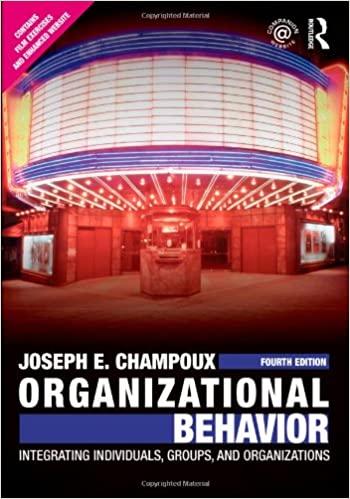Discuss conflict frames and orientations. Which orientation best characterizes you? What do you tend to do when
Question:
Discuss conflict frames and orientations. Which orientation best characterizes you? What do you tend to do when entering a conflict episode?
CONFLICT FRAMES AND ORIENTATIONS
People approach conflict episodes with different perceptual frames. They also have different conflict orientations that can affect their behavior during an episode. If you must manage conflict, understanding these frames and orientations can help you diagnose conflict.
frames are the perceptual sets that people bring to conflict episodes. They act as perceptual filters, removing some information from the episode and emphasizing other information. Research has identified conflict frames that vary along three dimensions:
- Relationship–task: A relationship emphasis focuses on the parties’ interpersonal relationship. A task emphasis focuses on the material aspects of an episode, such as a budget.
- Emotional–intellectual: An emotional emphasis focuses on feelings in the episode (felt conflict). An intellectual emphasis focuses on observed behavior (manifest conflict).
- Cooperate–win: A cooperation focus emphasizes the role of all parties to the conflict. A party with a winning focus wants to maximize personal gain.
Some limited research shows the different frames’ effects in conflict episodes. People can start an episode with different conflict frames, but end the episode with the same frame. Those who end an episode with a relationship or intellectual frame feel good about their relationship with the other party. Cooperation-focused people end an episode with more positive results than those focused on winning.
Step by Step Answer:

Organizational Behavior Integrating Individuals Groups And Organizations
ISBN: 9780415804646
4th Edition
Authors: Joseph E. Champoux





